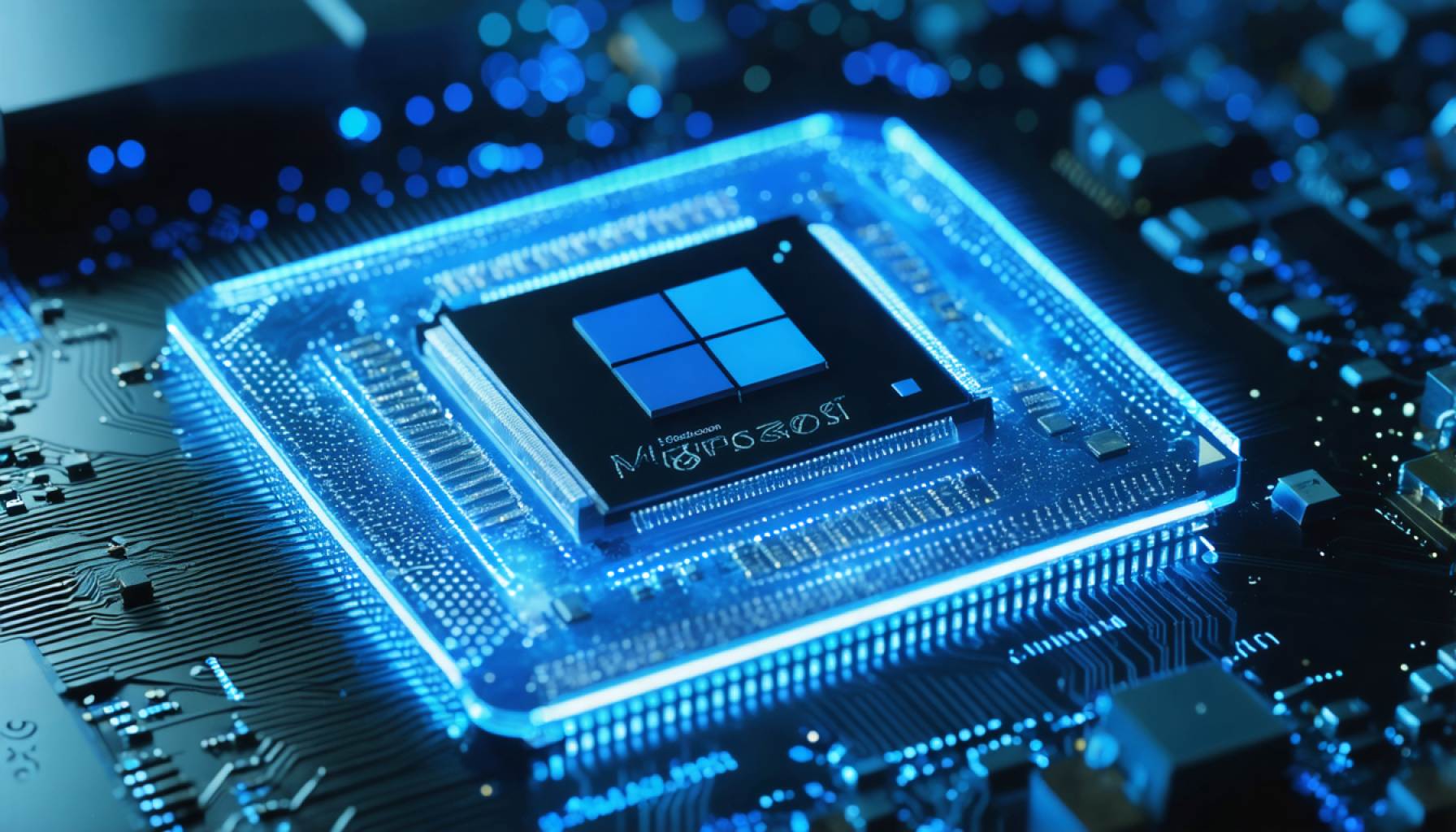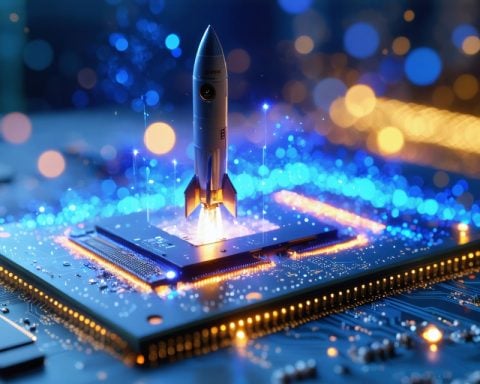- Microsoft’s Majorana 1 chip promises to revolutionize computing with its potential to handle one million qubits.
- Quantum computing could transform fields like medicine, climate science, and cybersecurity.
- The chip uses Majorana particles and a topoconductor mechanism to ensure qubit stability.
- The technology faces challenges with qubit coherence and scaling to practical systems.
- Microsoft’s innovation is recognized by DARPA, highlighting its leadership in quantum computing development.
- Global interest and investment in quantum research are accelerating the approach toward quantum supremacy.
- The advent of quantum computing may soon make it a ubiquitous part of everyday technology.
In a groundbreaking leap for technology, Microsoft’s Majorana 1 chip surfaces as a beacon of quantum potential, poised to redefine the landscape of computing. Sized like a typical desktop CPU, this chip dares to handle an astounding one million qubits, propelling quantum computing from theoretical brilliance into practical reality.
The landscape of quantum computing lights up with the Majorana 1 at its epicenter, promising transformative impacts on everyday life. Imagine quantum algorithms unlocking personalized medicine, revolutionizing drug discovery, addressing intricate molecular interactions, and paving new paths in cancer treatment. In the realm of climate, quantum advancements could forge more accurate models, assisting in combatting climate change with precise weather forecasts.
Cybersecurity stands on the precipice of evolution as quantum computing both threatens existing encryption and inspires cutting-edge secure communications. The stakes are high, but so are the opportunities.
Microsoft’s daring innovation hinges on the elusive Majorana particles, coupled with an ingenious topoconductor mechanism that amplifies qubit stability. Yet, the journey is fraught with challenges, particularly in managing qubit coherence and scaling from visionary prototype to fully-fledged systems. Despite these hurdles, Microsoft’s pioneering efforts have garnered prestigious attention from DARPA, underscoring their leadership in the race for functional quantum systems.
Investor excitement echoes through the market with companies like D-Wave, IonQ, and Quantum Computing Inc. surging on the waves of optimism. As governments globally pour resources into quantum research, the once-remote dream of quantum supremacy inches closer to reality.
The takeaway? Quantum computing is on the verge of everyday ubiquity. With breakthroughs like Microsoft’s, this digital renaissance may soon become an integral part of our technological tapestry, ushering a new era of possibilities. Prepare for a quantum leap into the future.
Microsoft’s Quantum Leap: How the Majorana 1 Chip Could Redefine Our Future
Feature Insights: What Makes the Majorana 1 Chip Stand Out?
The Majorana 1 chip by Microsoft is a revolutionary advancement in the field of quantum computing, boasting the capability to manage one million qubits. Its standout feature is the utilization of Majorana particles coupled with a topoconductor mechanism, which is designed to enhance qubit stability significantly. This innovation is poised to make quantum algorithms more viable in practical applications, potentially revolutionizing fields from medicine to climate science.
Potential Use Cases: How Quantum Could Transform Our World
Quantum computing holds the potential to revolutionize multiple industries. In personalized medicine, it can unlock unprecedented drug discovery paths and tackle complex molecular interactions, which could lead to breakthroughs in cancer treatment. Similarly, in climate science, quantum capabilities might facilitate the development of more accurate models, enhancing weather forecasts and aiding in climate change intervention efforts. Additionally, quantum innovations could redefine cybersecurity, though they present both risks and opportunities in secure communications.
Major Challenges: What are the Obstacles on the Road to Quantum Supremacy?
Despite the incredible potential, the path to quantum supremacy is fraught with challenges. The primary issues entail managing qubit coherence and the difficulty of scaling from prototypes to fully operational systems. Microsoft’s efforts, while groundbreaking, reflect the broader struggle in the quantum field to maintain stability and coherence in qubit operations, a task that is crucial for practical applications of quantum technology.
Important Questions and Answers
1. What are Majorana particles, and why are they crucial for the Majorana 1 chip?
Majorana particles are theoretical particles that function as their own antiparticles. They are significant for the Majorana 1 chip because they contribute to the stability of qubits, which is essential for error-free quantum computations. The utilization of Majorana particles helps in reducing error rates, paving the way for more reliable quantum computing solutions.
2. How does the Majorana 1 chip influence the current market of quantum computing?
The introduction of the Majorana 1 chip has energized the market, with quantum computing companies such as D-Wave, IonQ, and Quantum Computing Inc. seeing increased investor interest. As governments and private sectors increase their investment in quantum technologies, we can expect accelerated development and adoption of quantum solutions across various domains, inching closer to achieving quantum supremacy.
3. What is the significance of Microsoft’s collaboration with DARPA in quantum research?
Microsoft’s collaboration with DARPA highlights the importance of public-private partnerships in advancing quantum technologies. The support from DARPA not only underscores the strategic value placed on quantum computing but also provides Microsoft with additional resources and expertise to overcome the challenges of scaling up these technologies, bringing them closer to practical implementation.
For further insights into Microsoft’s quantum advancements and their implications, visit the main website of Microsoft.



















